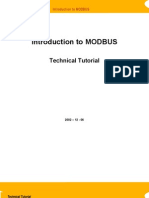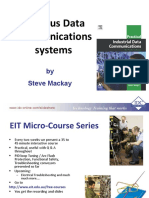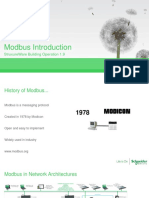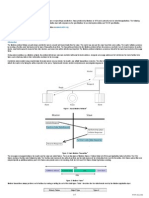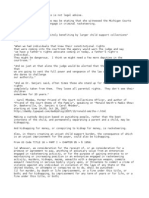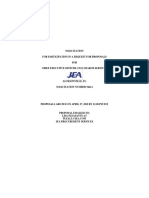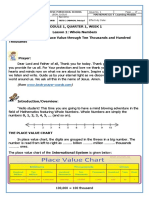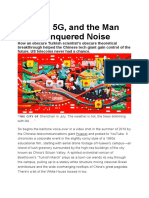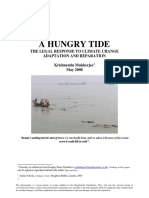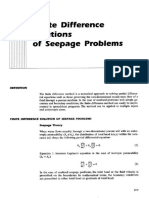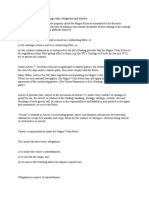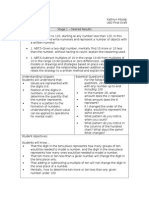0% found this document useful (0 votes)
616 views34 pagesModbus Communication
Modbus Serial is an application layer messaging protocol used for communication between industrial devices connected via a serial bus. It uses a master-slave architecture with various physical layers including RS-485. Key features include its open standard, ease of use, and support for up to 32 devices on a bus. It operates at the application layer of the OSI model and supports both unicast and broadcast addressing of devices.
Uploaded by
Tuan AnhCopyright
© © All Rights Reserved
We take content rights seriously. If you suspect this is your content, claim it here.
Available Formats
Download as PDF, TXT or read online on Scribd
0% found this document useful (0 votes)
616 views34 pagesModbus Communication
Modbus Serial is an application layer messaging protocol used for communication between industrial devices connected via a serial bus. It uses a master-slave architecture with various physical layers including RS-485. Key features include its open standard, ease of use, and support for up to 32 devices on a bus. It operates at the application layer of the OSI model and supports both unicast and broadcast addressing of devices.
Uploaded by
Tuan AnhCopyright
© © All Rights Reserved
We take content rights seriously. If you suspect this is your content, claim it here.
Available Formats
Download as PDF, TXT or read online on Scribd
/ 34












